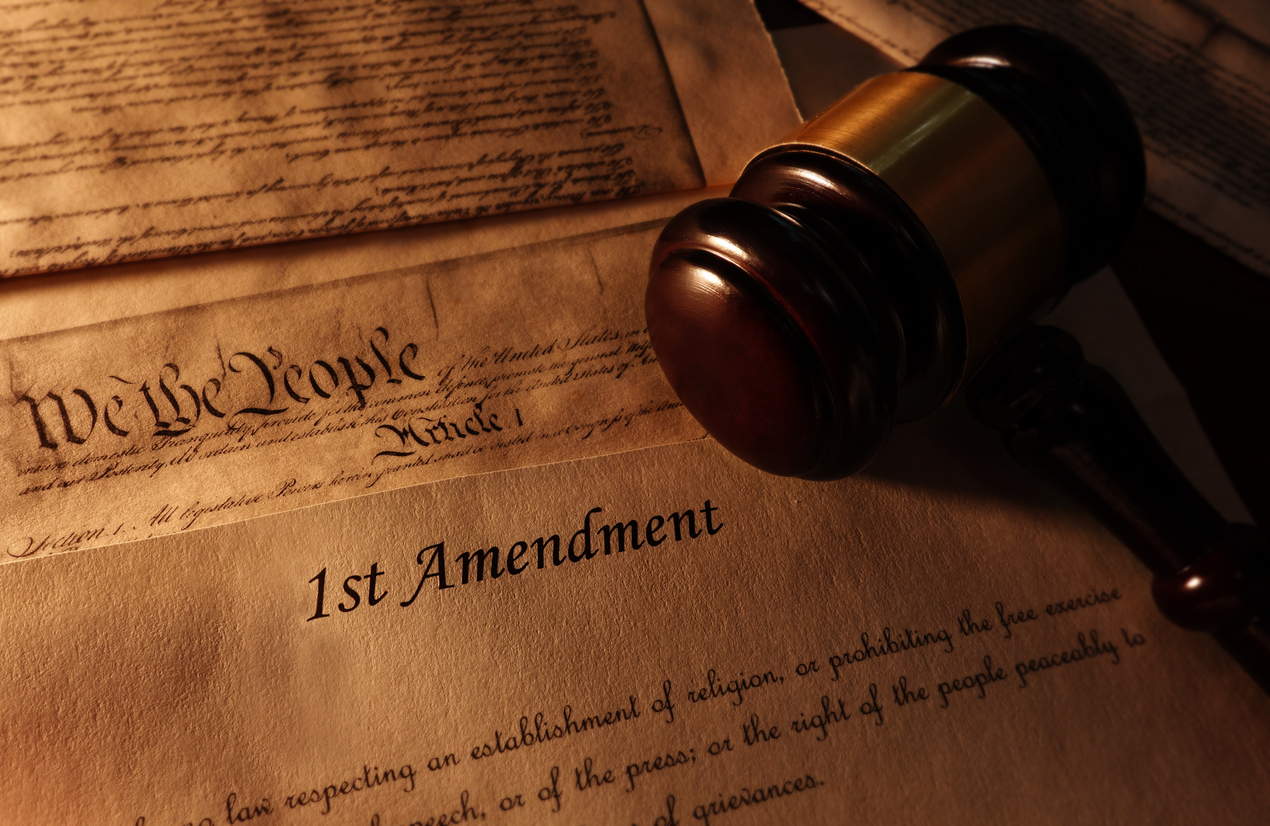Protecting Donors and Charities: Four Steps Faith-Based Nonprofits Should Take Following AFPF v. Rodriquez
by Napa Legal Staff
Two 501(c)(3) nonprofits will advocate for First Amendment protections for nonprofits and their donors before the U.S. Supreme Court on Monday, April 26.
The nonprofits, Americans for Prosperity Foundation and the Thomas More Law Center, challenge a California charities regulation that requires most nonprofits fundraising in California to give the state a list of the names and addresses of the nonprofits’ major donors.[1] This is done by submitting a copy of the IRS Form 990 Schedule B as part of the organization’s California Form RRF-1 Annual Report.
The nonprofits argue that the regulation improperly limits First Amendment protections of both the donors’ and the organizations’ rights of association and assembly. Under this argument, the requirement is unconstitutional unless the state regulator proves the requirement is “narrowly tailored” to further a “compelling government interest.”
California is not the only state whose charities regulations will be impacted by this case. Florida, New Jersey, Hawaii, and New York also currently require Schedule B donor information.[2] These requirements do not impact most religious organizations soliciting in Florida, New Jersey, and New York because these states have broad, automatic religious exemptions from charitable registration.[3] Additionally, Florida permits organizations to redact the names and addresses of contributors when submitting the Schedule B as part of the organization’s annual renewal.
California also has a religious exemption, although, in practice, the scope of the exemption for religious nonprofits incorporated outside California is unclear and inconsistently applied.
In contrast, Hawaii has only a narrow religious exemption available. Accordingly, faith-based organizations with concerns about donor privacy should consult with an attorney to determine whether refraining from solicitation in Hawaii would be in the best interests of the organization.
First Amendment protections for donors are increasingly important because of the rise of “cancel culture.”[4] The importance of the case is underscored by amicus briefs filed by high-profile organizations and nonprofit professionals from Philanthropy Roundtable to Chinese Aid Association to Cato Institute.
As mentioned above, if your organization is religious, you and your donors might not be directly impacted by this case. However, you should still take proactive steps to protect your organization and its donors because the underlying controversy over donor privacy is likely to continue. Below are some suggestions.
1. Understand State Charities Regulation. Is your organization currently in compliance with state charities laws?
If you’re not sure, start by reviewing our post on Charitable Solicitation Registration and the Multi-State Matrix state profile for any state in which your organization fundraises. You can also learn more about charities regulations generally in our webinar Steps for Success for Lay Apostolates Part II: Becoming and Staying Exempt (starting at 1:40).
2. Understand Religious Exemptions. Is your organization exempt from state charities registration and/or reporting in any states in which you fundraise? Have you properly applied for exemption or documented your eligibility for an automatic exemption?
If you are not sure, work with your attorney and review Napa Legal’s Multi-State Matrix profiles for any states in which your organization solicits funds. If you have current religious exemptions, or plan to apply for religious exemptions, you should also make sure your organization has legally established its religious identity. See our religious identity resources for more information about how to assess your religious identity and opportunities for improvement.
3. Understand Your Funding Model. Does your organization receive revenue through program fees or donations? Do you receive most of your revenue from a few, large donors?
If so, increased donor disclosure regulations might have a particularly strong impact on your organization and your donors because most donor disclosure regulations target donors over $5,000 or above.
Conversely, if you have many, small-dollar donors, your organization and donors might feel the impact of regulations less acutely.
Regardless of the outcome of this case, managing your organization prudently requires understanding the strengths and vulnerabilities of your funding model.
4. Audit your Fundraising Practices. The IRS, as well as state charities regulators, oversee certain aspects of charitable donations and fundraising. The IRS has specific requirements your organization should observe when accepting charitable contributions, whether in the form of cash or other property, such as stock or real estate. To assess your compliance and learn more about these regulations, see our charitable giving whitepaper.
Further Reading:
· Americans for Prosperity Foundation v. Rodriquez Case Filings
· Brief of the Becket Fund for Religious Liberty
· Brief of Philanthropy Roundtable
· Brief of States of New York, et al.
· Brief of Citizen Power Initiatives for China
· IRS Form 990 Schedule B: Schedule of Contributors and Instructions
· California Initial Registration Form and Application for Exemption (Form CT-1)
· California Annual Registration Renewal Fee Report (Form RRF-1)
_____
[1] Interestingly, Thomas More Law Center’s brief does not indicate whether the organization declined to apply fora religious exemption to the filing requirement or applied but was denied exempt status.
[2] Fla. Stat. § 496.405(2)(a); Haw. Rev. Stat. § 467N-6.5; N.J. Admin. Code § 13:48-4.3(a)(8) to (a)(9); and 13 N.Y. Comp. Codes R. & Regs. tit. 13 § 91.5(c)(3).
[3] Fla. Stat. § 496.403, Fla. Stat. § 496.404(23); Haw. Rev. Stat. § 467B-11.5(1); N.J. Rev. Stat. § 45:17A-26; and N.Y. Exec. Law § 172-A; N.Y. Est. Powers & Trusts Law §8-1.4(b)(3).
[4] According to Merriam-Webster, “Canceling and cancel culture have to do with the removing of support for public figures in response to their objectionable behavior or opinions. This can include boycotts or refusal to promote their work.”
.png)

.jpg)


